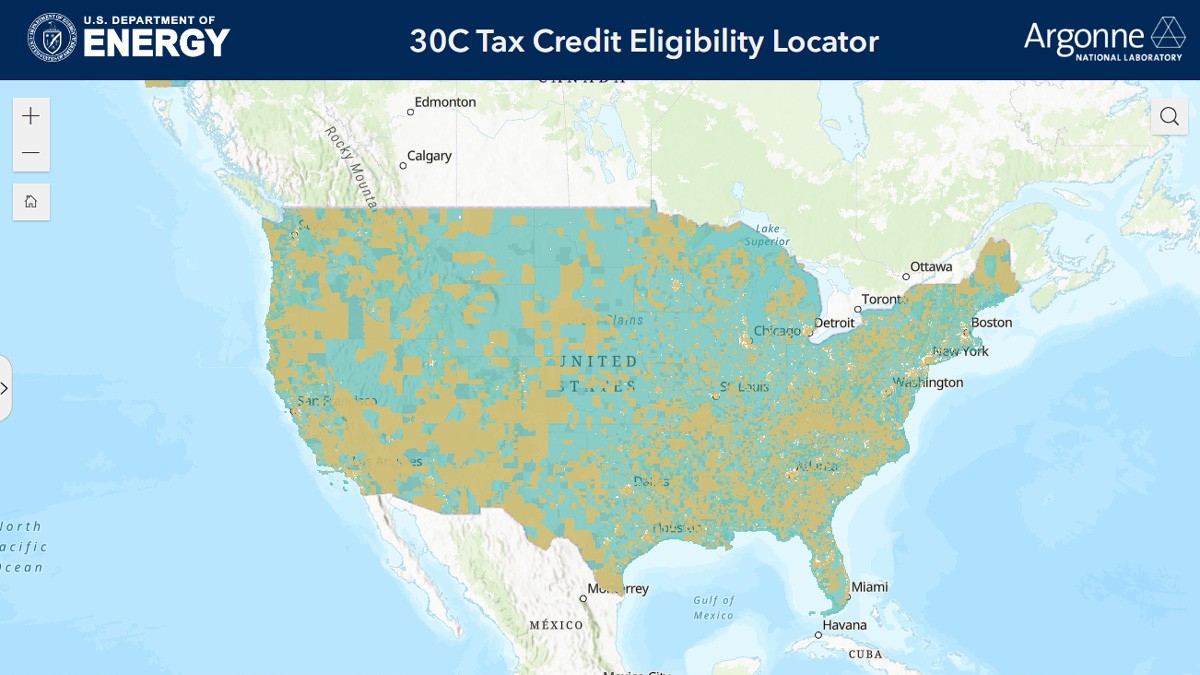
The US Treasury Department released updated guidance today on EV charger tax credit eligibility for individuals and businesses – here’s the lowdown.
The 30C EV charging tax credit
When the Inflation Reduction Act became law in August 2022, it provided a tax credit for up to 30% of the cost of qualified EV charging “property.” Formally known as the Alternative Fuel Vehicle Refueling Property Credit, the IRA modified the limitation on the 30C EV charging tax credit so that it no longer applies on a per-site basis and instead now applies per single item of EV charging property – that is, per charger.
The US Treasury’s EV charger tax credit (which is claimed on IRS Form 8911) is limited to $1,000 for individuals claiming for home EV charging and $100,000 – up from $30,000 – for business properties. That came into effect on January 1, 2023 (i.e., a year ago).
The tax credit can also be claimed through direct pay, so “eligible entities such as governments and tax-exempt organizations making investments in EV infrastructure can benefit.”
Location, location, location
The IRS’s latest guidance is about how in order to qualify for the 30C EV charging tax credit, individuals and businesses need to be in an “eligible census tract.” The IRS defines an eligible census tract as “any population census tract that qualifies as a low-income community or that is not an urban area.”
The White House said today that eligible census tracts will “confirm that the Inflation Reduction Act’s 30C EV charging tax credit is available to approximately two-thirds of Americans.”
The US Department of Energy and Argonne National Laboratory have now released a mapping tool to help individuals and businesses find out whether they’re eligible for the 30C EV charging tax credit. (Note that there’s a disclaimer on the map that says it’s not formal IRS guidance – and neither is this article! – so when the time comes to file your taxes, consult with a tax professional to confirm eligibility.)
The Zero Emission Transportation Association’s (ZETA) executive director, Albert Gore III, said, “As the principal incentive for charging infrastructure, 30C plays an outsized role in transitioning our nation to electric vehicles.
“We … now have 170,000 publicly available EV chargers across the country. The Biden Administration set a goal of deploying 500,000 public chargers by 2030. To realize this ambitious goal, the 30C tax credit must be implemented effectively.”
You can find the 30C Tax Credit Eligibility Locator map here.
Argonne also has a helpful FAQ about the 30C tax credit here.
Read more: Here’s how much money you’ll get with the Inflation Reduction Act
If you’re an electric vehicle owner, charge up your car at home with rooftop solar panels. To make sure you find a trusted, reliable solar installer near you that offers competitive pricing on solar, check out EnergySage, a free service that makes it easy for you to go solar. They have hundreds of pre-vetted solar installers competing for your business, ensuring you get high quality solutions and save 20-30% compared to going it alone. Plus, it’s free to use and you won’t get sales calls until you select an installer and share your phone number with them.
Your personalized solar quotes are easy to compare online and you’ll get access to unbiased Energy Advisers to help you every step of the way. Get started here. –ad*
